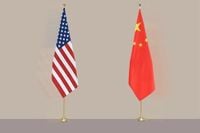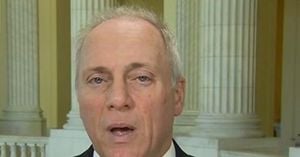In a significant move aimed at easing rising tensions between the two largest economies in the world, China and the United States have announced plans to hold trade talks in Switzerland this week. This decision comes on the heels of weeks marked by escalating tariff hikes that have rattled global markets and raised concerns about the future of international trade.
According to a statement from China’s Foreign Ministry on Wednesday, May 7, 2025, Vice Premier He Lifeng, who is the Chinese lead official for economic and trade affairs with the U.S., will meet with U.S. Treasury Secretary Scott Bessent. The talks are scheduled to take place from Friday, May 9, 2025, through Monday, May 12, 2025, in Switzerland.
China’s Ministry of Commerce emphasized that the country is committed to resuming engagement with the U.S. on trade issues, reflecting a desire to stabilize the economic relationship. The ministry stated that this engagement is based on global expectations as well as China’s national interests. The upcoming discussions are seen as a crucial step toward addressing the mounting economic pressures resulting from the recent tariff disputes.
During his time in Switzerland, Vice Premier He Lifeng is expected to engage not only with Secretary Bessent but also with Swiss leaders and other relevant parties. This broader dialogue aims to foster a more collaborative atmosphere in international trade discussions, which have been increasingly fraught with challenges.
Moreover, after concluding his meetings in Switzerland, Vice Premier He will travel to France. From May 12 to May 16, he will co-chair the 10th China-France High-Level Economic and Financial Dialogue with French officials. This visit underscores China’s ongoing efforts to strengthen its economic ties with European nations, even as it navigates complex relations with the U.S.
The backdrop to these talks is a series of retaliatory tariff increases that have characterized U.S.-China relations in recent months. Each country has imposed tariffs on a range of goods, leading to heightened prices for consumers and uncertainty in global supply chains. The latest round of tariffs has particularly affected industries such as technology and agriculture, which are critical to both economies.
Experts have expressed cautious optimism regarding the upcoming talks. “There is a palpable sense of urgency on both sides to find common ground,” said an analyst who wished to remain anonymous. “The stakes are high, not just for the U.S. and China, but for the global economy as well.”
In the wake of these developments, there are calls from various sectors for a more constructive approach to trade negotiations. Business leaders and economists alike have urged both governments to prioritize dialogue over confrontation, arguing that a stable trade environment is essential for economic recovery post-pandemic.
Additionally, there is pressure on the U.S. administration to adopt a more balanced trade policy that addresses concerns from various stakeholders, including farmers, manufacturers, and consumers who have been impacted by the trade war. “We need to see a commitment to fair negotiations that acknowledge the complexities of global trade,” stated a representative from the U.S. Chamber of Commerce.
As the date for the talks approaches, the international community will be watching closely. The outcome of these discussions could set the tone for future interactions between the two nations and influence global economic trends. The hope is that both sides will come to the table with a willingness to compromise and a focus on long-term solutions.
In summary, the upcoming trade talks in Switzerland represent a critical juncture for U.S.-China relations. With Vice Premier He Lifeng and Secretary Bessent leading their respective delegations, the discussions are expected to address pressing trade issues that have far-reaching implications. As the world awaits the results of these negotiations, the focus remains on the necessity for constructive engagement and mutual respect in addressing the challenges ahead.




